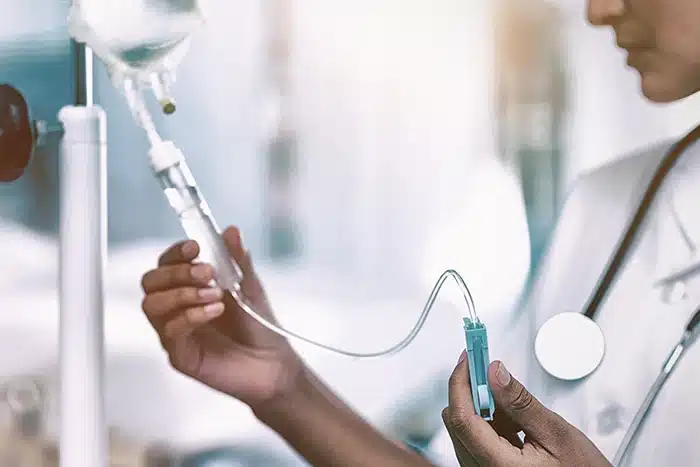The National Practitioner Data Bank reported 11,440 medical malpractice claims in 2023. Excluding verdicts, the settlements from these claims totaled approximately $4.8 billion. These claims have an average payout of $420,000. About 3,200 of the 11,440 claims were settled for less than $100,000, while around 1,300 claims resulted in payouts over $1 million.
Nurses may be held liable for malpractice when their conduct or inaction falls below the standard of care expected from their profession.
Nurse malpractice attorney Stephen B. Goethel says medical malpractice cases are complex and fact-specific and achieving a successful compensation requires aggressive representation by experienced attorneys. A lawyer with extensive knowledge of medical malpractice law is important to effectively pursue these challenging cases.
In this article, you will learn how to recognize incidents where nurses can be held liable for medical malpractice. Knowing when a nurse is accountable is critical for everyone, including patients, lawyers, and nurses themselves.
Understanding Nurse Malpractice: Definition and Scope
Nurses who harm patients or act negligently are convicted of nursing malpractice.
All healthcare workers should be aware of nursing malpractice, as liability can also arise from actions that fall outside traditional nursing duties.
Lack of attention to vital signs, medication with a different name, or attendant neglect are examples of nursing malpractice. These practices can greatly impact patient outcomes and recovery.
There are some cases where malpractice resulted from a nurse’s non-action or communication failure.
Understanding the scope of nursing responsibilities and legal boundaries helps patients recognize a nurse’s duties and rights, promoting safer, more effective care.
Key Elements of Nurse Liability in Malpractice Cases
Understanding the key components of liability in malpractice cases is critical for both the nurse and the patient at risk.
- The nurse must fulfill a duty of care that includes providing competent and compassionate treatment.
- If the nurse fails to meet the standard duty of care, it may be considered negligence. There must be a direct link between the nurse’s violation of the accepted standard of practice and the patient’s injury.
- The patient must be able to show that actual damages occurred, whether in the form of physical injury or emotional distress.
- Keep in mind that mistakes do not always equate to liability. The error’s status as malpractice is determined by whether it was a reasonable decision under the circumstances or a clear violation of accepted medical standards.
Common Scenarios Leading to Nurse Malpractice Claims
Malpractice claims are frequently the result of routine occurrences in the nursing environment. One of the most common issues is medication errors, such as administering the wrong drug, the wrong dose, or both.
Ignoring a patient’s vital signs can lead to serious consequences and highlights the need for prompt and consistent monitoring. Incomplete patient care records may create gaps in treatment, increasing the risk of liability.
Insufficient guidance on medication or treatment for a patient increases the likelihood of a claim if problems arise. Delays in requesting assistance during an emergency can result in preventable harm.
Knowing and recognizing these scenarios can highlight the importance of upholding high standards of care, avoiding malpractice allegations, and protecting one’s patients or oneself.
Legal Standards and Responsibilities for Nurses
There are laws that regulate nursing practice to maintain patient safety and minimize liability. Professional standards require nurses to follow the latest medical protocols and guidelines when treating patients.
If you are working as a nurse, you need to have clear, accurate records. Upholding ethics and maintaining confidentiality are fundamental responsibilities in nursing practice.
Know your limits in practice and when to consult a doctor or other healthcare professional. Comply with the law to protect yourself from malpractice claims and keep your patients safe.
Strategies for Nurses to Mitigate Malpractice Risks
Nurses have various ways to avoid malpractice charges when interacting with patients and colleagues. Discussing treatment alternatives and voicing worries helps to foster confidence and improve knowledge.
A nurse can choose to document patient meetings in detail to avoid potential issues and conflicts in the future. Nurses and other hospital staff should undergo annual educational seminars regarding proper medical care for patients. Signing up for courses on best practices and professional guidelines helps them reinforce their knowledge in nursing. Regular training keeps nurses qualified and competent, lowering the likelihood of errors in clinical practice.
Peer reviews can offer insightful analysis of other fields that might require development. Nurses should establish a strong support network among their colleagues where they can discuss challenging situations and exchange possible solutions to help improve patient care and decision-making.


